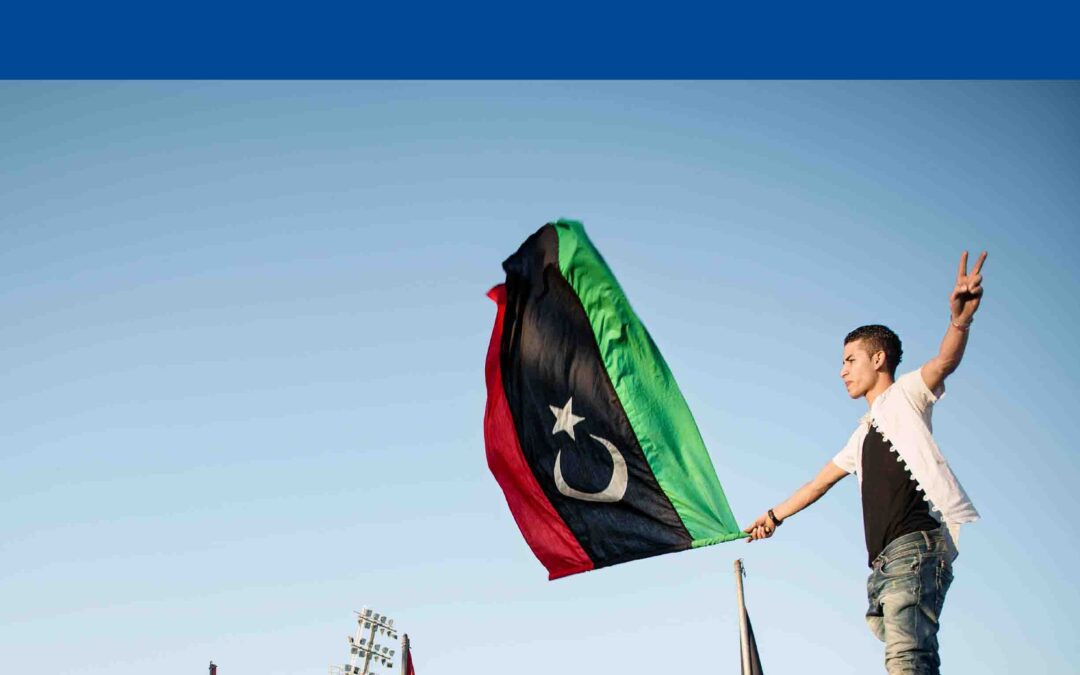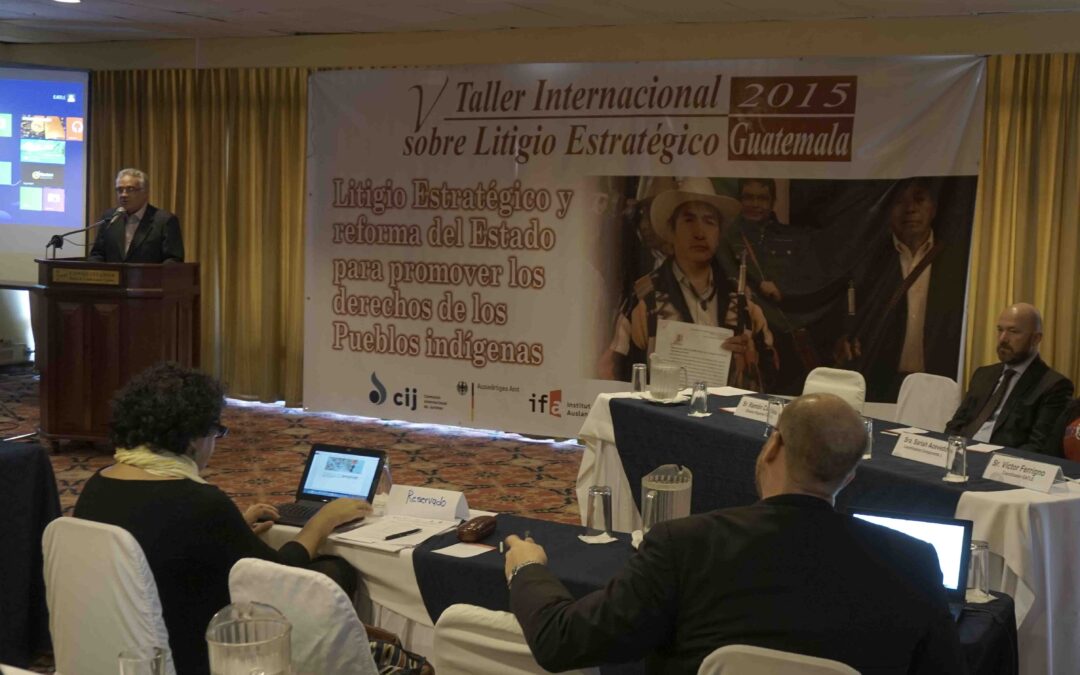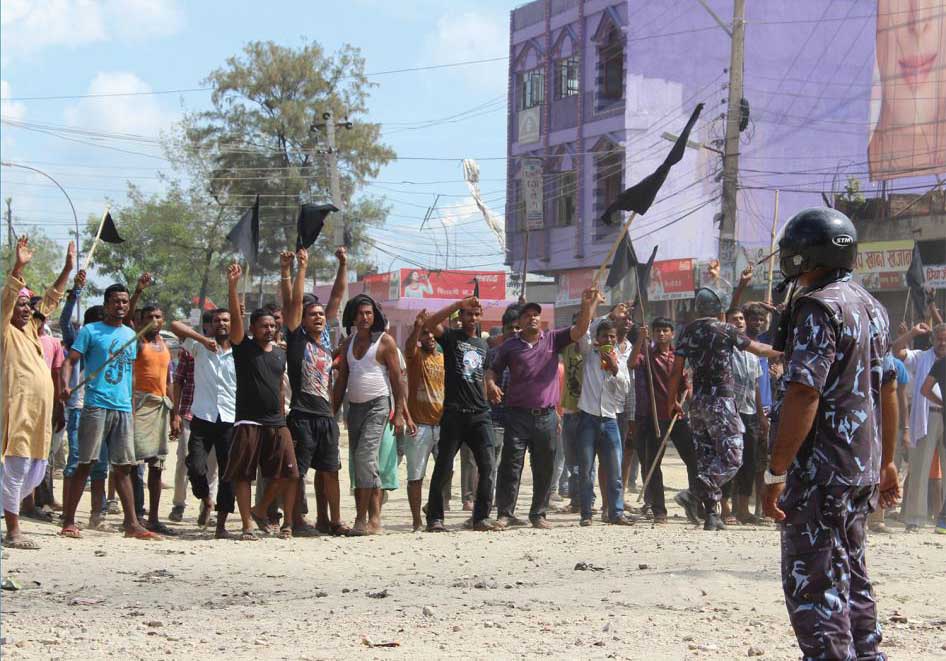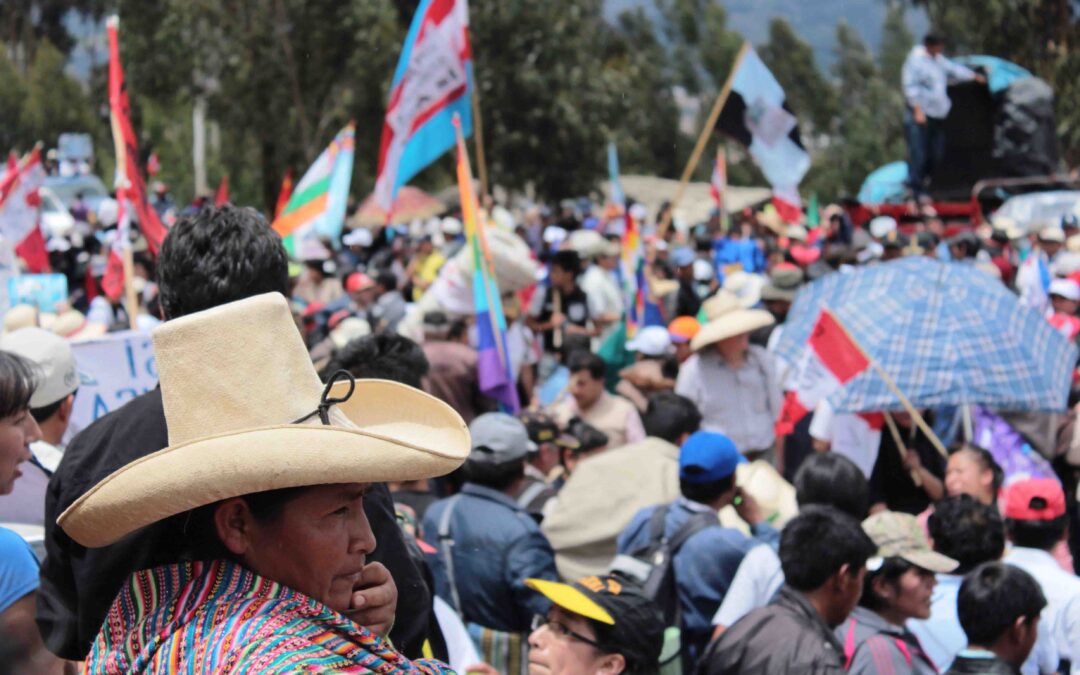
Dec 17, 2015 | News, Publications, Reports
With the signing of the political agreement on a national unity government today, the next step in Libya’s transition will be to ensure that its new Constitution fully conforms to international rule of law and human rights standards, the ICJ said today.
The statement came as the ICJ released its new report The Draft Libyan Constitution: Procedural Deficiencies, Substantive Flaws.
In the report, the ICJ calls on the Libyan Constitution Drafting Assembly (CDA) to substantially revise the Draft Constitution published in October with a view to ensuring its full compliance with Libya’s obligations under international human rights law and international standards.
Libyan authorities, including the CDA, should also put in place effective mechanisms to ensure that the drafting process is inclusive, participatory, and fully reflects the views of a broad range of stakeholders, including civil society and minority groups.
The report concludes that the Draft Constitution, in many key respects, does not conform to Libya’s obligations under international human rights law or to international rule of law standards.
“The new Constitution provides a crucial opportunity to depart from decades of authoritarianism under Moammar Ghadafi’s regime. It must therefore provide for a strong foundation upon which the rule of law, including the separation of powers, the independence of the judiciary and civilian oversight over military and armed groups, can be established and upheld,” said Said Benarbia, Director of the ICJ MENA programme.
The Draft Constitution should also be amended to provide for a comprehensive set of human rights and protections that fully accord with international human rights law, including provisions relating to non-discrimination, the right to life, the right to liberty and security, the prohibition on torture and other cruel, inhuman or degrading treatment or punishment, protections for minorities, the right to freedom of thought, conscience and religion, fair trial rights, and a range of economic, social and cultural rights.
“The Libyan Constitution must at a minimum conform to the definition and scope of the rights contained within the human rights treaties to which Libya is a state party. Any scope for limitation of rights must conform to the criteria for such limitations under international law and, in particular, only as are provided for by law, are proportionate, and are demonstrably necessary in a free and democratic society,” Benarbia added.
Contact:
Doireann Ansbro, Associate Legal Advisor of the ICJ Middle East and North Africa Programme, tel: +216 71 841 701, email: doireann.ansbro(a)icj.org
Libya-Draft Constitution Flaws Deficiencies-Publications-Reports-2015-ENG (full report in PDF, English)
Libya-Constitution Flaws Report-News-Press releases-2015-ARA (full press release in Arabic, PDF)
Libya-Draft Constitution Flaws Deficiencies-Publications-Reports-2015-ARA (full report in PDF, Arabic)

Nov 25, 2015 | News
Inauguration of the 5th International Seminar on Strategic Litigation in Guatemala City.
On 25th November, Ramon Cadena, Director of the ICJ Regional Office in Central America, together with Alberto Brunori, Representative of the OCHCR in Guatemala and Victor Ferrigno, Coordinator of Support for Strategic Litigation in Guatemala, launched the event.
During the two-day seminar over 100 human rights defenders, lawyers and academics from the American continent will share experiences, good practices and achievements in the use of strategic litigation as part of a broader strategy to promote and defend human rights.
In addition to strategic litigation, other focal points for discussion include indigenous peoples’ land rights and the identification of priorities in legal and constitutional reform.

Nov 24, 2015 | News
The government and all political parties, along with the country’s neighbors and international supporters, must act immediately to end the increasingly violent political crisis in the southern Terai region said the ICJ today.
The associated border blockade that has imposed severe shortages of necessary commodities throughout the country must also be ended, the ICJ added.
Over the weekend, three individuals were killed and at least another 28 individuals, including 15 police officers, were injured during clashes following an apparent impasse in talks among political parties trying to end the crisis over the newly adopted Constitution.
“Nepali authorities should promptly investigate and bring to justice the perpetrators – be they security forces or protesters – of any unlawful killings and other acts of violence committed during the ongoing protests in the Terai, and ensure that security forces refrain from the use of excessive force against civilians,” said Sam Zarifi, ICJ’s Asia-Pacific Director.
“At the same time, the Nepal government must address the severe shortage of commodities and the impact it has had on economic and social rights by prioritizing the most urgent needs while working to resolve the constitutional crisis,” he added.
The border blockade initiated nearly three months ago has had a deeply detrimental impact on the economic and social rights of the population countrywide, including the rights to food, water and sanitation, health and adequate housing, by causing severe shortages of essential commodities such as fuel, cooking gas and medical supplies throughout the country.
Madhesi groups have been demonstrating against Nepal’s new Constitution in the Terai since August 2015, protesting discriminatory aspects of the new Constitution that they argue would entrench marginalization, and have been staging a de facto blockade at the main border posts along the Nepal-India border since the Constitution was adopted on 20 September 2015.
India has been accused of imposing or collaborating in the blockade, an allegation which the Indian government has denied.
The ICJ has previously highlighted the lack of proper consultation in the drafting and adoption of the Constitution as well as the substantive human rights defects in its text, particularly the discriminatory provisions on the rights of women and some ethnic groups.
More than 45 persons, including 8 police personnel, have been killed during violent confrontations that have erupted between protesters and security forces since the demonstrations began, with allegations of excessive use of force by Nepali security forces as well as violent attacks by protesters against police personnel.
One Indian national was apparently killed by Nepali security forces at the Birgunj border last month.
“The Nepal government has a responsibility to protect the rights and security of its people and to re-establish the rule of law in the Terai,” said Zarifi. “However, Nepal must at all times respect the people’s right to peaceful protest and free assembly, and ensure that security forces exercise maximum restraint when responding to the demonstrations.”
The ICJ emphasizes that India and Nepal have an obligation to protect the human rights, including the economic and social rights, of persons impacted by their acts or the actions of those under their jurisdiction, and accordingly have an obligation to remove obstacles to the enjoyment of those rights.
“Nepal has an obligation to ensure that all available resources at their disposal have been mobilized to alleviate the human rights and humanitarian impact of the border blockade on the most vulnerable sections of the population,” Zarifi added. “The Nepal government must provide a clear plan to assess and address the impact of the blockade by prioritizing available supplies to the most urgently needed areas throughout the country, not just in Kathmandu.”
“The impact of the blockade is all the more acute because the country is still reeling from the 25th April earthquake and its ongoing aftershocks,” Zarifi said. “The international community, particularly neighboring India, should do all it can to ensure that urgent humanitarian assistance gets to the Nepali people.”
Contact
Nikhil Narayan, ICJ Senior Legal Adviser for South Asia, t: +977 9813187821 ; e: nikhil.narayan(a)icj.org
Photo credit: HRW

Nov 15, 2015
This new Guide published today by the ICJ aims at providing legal practitioners and human rights advocates with updated knowledge about the applicable standards for the protection of economic, social and cultural rights (ESC rights) in Zimbabwe.
The Guide is an adaptation of existing publications elaborated by the ICJ in the past years. It is largely based on the ICJ Practitioners Guide No. 8: “Adjudicating Economic, Social and Cultural Rights at National Level”.
It can be downloaded here: Zimbabwe-Guide ESCR web-Publications-Thematic Report-2015-ENG (full report in PDF)

Nov 13, 2015 | Comunicados de prensa, Noticias
Las autoridades peruanas deben revisar algunas de sus leyes y políticas para proteger mejor los derechos económicos, sociales y culturales en el país, pidió hoy en Lima la CIJ.
La petición se hace al final de una misión de una semana realizada por la CIJ para recoger información y evaluar el impacto de las industrias extractivas en el disfrute de los derechos económicos, sociales y culturales de la población, en especial, los campesinos y las comunidades indígenas.
En particular, la CIJ está preocupada por el impacto negativo en los derechos humanos del Decreto 30230, que busca facilitar la inversión privada.
Mientras la inversión puede contribuir de manera importante al disfrute de los derechos humanos, la CIJ considera que esta norma en particular conduce en la práctica a la falta de respeto de los derechos humanos en cuanto reduce los estándares de protección ambiental y social.
La CIJ saluda la adopción de legislación que protege los derechos humanos, incluido el derecho a la consulta previa de los pueblos indígenas y la regulación del uso de la fuerza por parte de la Policía.
Sin embargo, la CIJ nota que con frecuencia esas leyes en la práctica no son implementadas efectivamente.
Durante su misión, la CIJ pudo verificar la información sobre el incremento del número de conflictos violentos y de protestas sociales relacionadas con los proyectos mineros.
“Un gran número de los conflictos sociales actuales tienen lugar en áreas donde se llevan a cabo actividades de la industria extractiva. La tendencia a disminuir la protección de los derechos económicos, sociales y culturales y del ambiente, para facilitar la inversión, genera un alto riesgo de que la violencia de los conflictos se incremente”, dijo Sandra Ratjen, Asesora Jurídica Sénior del programa de la CIJ para los derechos económicos, sociales y culturales.
“Hay una brecha entre las obligaciones internacionales de Perú de respetar y proteger los derechos humanos y las amenazas sistemáticas que enfrentan las comunidades que se encuentran en las áreas mineras para disfrutar realmente derechos como el derecho al agua, a la salud y a la vivienda o a la consulta previa, libre e informada de las comunidades indígenas”, agregó.
La CIJ está particularmente preocupada por las afirmaciones de uso contrario al derecho internacional de la fuerza letal para controlar las manifestaciones y las protestas en zonas mineras, como ocurrió recientemente en Las Bambas.
La CIJ recibió información de diversas fuentes en el sentido que en varias ocasiones las fuerzas de seguridad han usado la fuerza en contra de los principios de necesidad y proporcionalidad.
La CIJ exhorta a las autoridades peruanas a tomar las siguientes medidas para fortalecer la protección de los derechos económicos, sociales y culturales en el país:
- Mantener y fortalecer las leyes y las políticas que protegen los derechos humanos, en particular los económicos, sociales, culturales y del ambiente;
- En consecuencia, revisar la legislación que impida que el Estado cumpla con sus obligaciones internacionales de derechos humanos, incluidas las relativas al disfrute de derechos como el derecho al trabajo decente, el derecho a la salud y al agua potable o el derecho a la protección frente a desalojos forzados;
- Asegurar plenamente el ejercicio del derecho de reunión y de la libertad de expresión de las personas y los grupos, incluidos los defensores de derechos humanos.
Información adicional
La misión de la CIJ incluyó a María Clara Galvis, abogada colombiana especialista en derecho internacional de los derechos humanos y profesora de la Universidad Externado de Colombia; Rafael Uzcátegui, sociólogo venezolano y Coordinador General del Programa venezolano de educación y acción en derechos humanos (PROVEA); Sandra Ratjen, Asesora Jurídica Sénior del Programa de Derechos Economicos, Sociales y Culturales de la CIJ y Olivier van Bogaert, Director de prensa y comunicaciones de la CIJ.
La delegación se reunió con autoridades de varios ministerios, representantes de empresas extractivas, agencias de cooperación, organizaciones de derechos humanos, sindicatos y organizaciones sociales. En diciembre, la CIJ publicará el informe final con sus hallazgos y recomendaciones sobre la situación de los derechos económicos, sociales y culturales en el contexto de las industrias extractivas y el aumento de los conflictos sociales en el Perú.
Contacto:
Sandra Ratjen, Senior Legal Adviser for ICJ’s Programme on Economic, Social and Cultural Rights, t: +55 96 48 13 628; e: sandra.ratjen@icj.org









